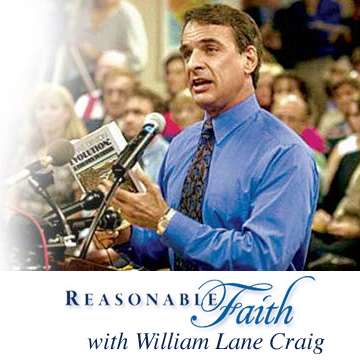
 Jesus in HD 178: YOUR Wedding Day Approaches (Sooner Than You May Think!) Play Now | Play in Popup | Download
Jesus in HD 178: YOUR Wedding Day Approaches (Sooner Than You May Think!) Play Now | Play in Popup | DownloadAs you will hear in this PODCAST, we are fast-approaching the end of our mini-series within a series, this one having to do with all-things End-Times related.
We are, as you well-know, well into the Olivet Discourse. Jesus’ primary teaching on End-Times events, as given on the Tuesday of His final week on earth.
In two weeks, we will pivot to the Thursday of Jesus’ final week, including His Upper Room Discourse.
It is curiously intriguing to me in the first letter that the Apostle Paul ever penned, 1 Thessalonians, he devoted so much of that letter to a discussion of the End Times. Which tells me that even from the very beginning, the first generation of committed Christ-followers had questions about Jesus’ return, even as they watched and waited for Jesus to come back.
There was then, as there is today, much confusion about what was going to happen and when it would happen.
One of the most encouraging things that Paul wrote — you could consider it Paul’s commentary on this podcast’s Matthew 25 passage — was this:
“Now, brothers and sisters, about times and dates we do not need to write to you, for you know very well that THE DAY OF THE LORD will come like a thief in the night. While people are saying, ‘Peace and safety,’ destruction will come on them suddenly, as labor pains on a pregnant woman, and they will not escape. But you, brothers and sisters, are not in darkness so that this day should surprise you like a thief. You are all children of the light and children of the day… Since we belong to the day, stay alert and be clearheaded… For God did not appoint us to suffer wrath, but to receive salvation through our Lord Jesus Christ… Therefore encourage one another and build each other up, just as in fact you are doing. (Just a few of the highlights of 1 Thessalonians 5)
So let’s now heed Paul’s loving encouragement and be clearheaded about what he called “the Day of the Lord.” A vitally important, oft-repeated biblical phrase.
Now listen carefully: Over the past few weeks, we have gone to great lengths to distinguish between such things as the Rapture, the Antichrist, the Tribulation, the Great Tribulation, the Battle of Armageddon, the Second Coming of Christ, Millennium, Eternal State, and all-things in between.
We who are of a Western Mindset obsess over the order of things (those perennially bestselling prophecy charts, along with all of their precisely-placed arrows).
As westerners, it is woven into every strand of our western DNA to focus on Form (how something fits, with an emphasis on symmetry, balance, order, everything in its proper place, everything perfectly fitted together). But those of a Middle Eastern Mindset were much more concerned over function — not on how things fit together, but rather on what things do. Not on how something fits, but what something does.
As you are about to hear, this will have a profound impact on your own personal Bible study.
For example, when a Middle Easterner reads the 23rd Psalm’s opening verse:
The Lord is my shepherd…
They don’t think about what a shepherd looks like, what comes next in the Psalm, or any other details about the shepherd than WHAT DOES A SHEPHERD DO?
So, the Psalm goes on telling us what the Good Shepherd does:
- He makes me lie down…
- He leads me beside…
- He restores my soul…
The rest of the Psalm answers the question, “What does a shepherd do?” It’s all about function.
This explains why we – American (Western) Christians – get so hung up on Biblical questions that the writers and original Biblical readers would have never even thought to ask. Consequently, we get hung up on questions that the Bible doesn’t even endeavor to answer. Because, to the original writers and readers, it didn’t matter how things fit, it mattered how things functioned.
An example: How can God be a Trinity? It is impossible to accurately and completely describe what the Trinity is like. But, the original writers and readers weren’t concerned about this. Instead, they asked, “What does the Trinity do?”
Genesis 1:1 tells us,
In the beginning, God created the heavens and the earth.
The Hebrew word elohim is used. This is actually a plural word, so the literal translation would be “In the beginning, Gods…”
The next word, “created” is the Hebrew bara, which is singular. So you have a plural entity singularly doing something. From the first verse of the Bible, we have a plural Godhead as a singular God. It would be akin to an American starting a sentence with the words, “They is…” It’s just wrong, in regards to our Western understanding. And, don’t think for a second that Moses, who wrote Genesis, did not know Hebrew grammar. He was more educated in Egyptian and Hebrew than nearly anyone in his day.
Yet, we obsess over “inconsistencies” such as this.
Another example: Are we saved because God chose us, or are we saved because we chose God?
The answer is YES!
How can that be? The question seems binary. Our Western sensibilities compel us to choose one… who did the choosing? God or us? Both! To the original writers and readers, it didn’t matter… it’s the way it works.
You will be in heaven because one day you chose to follow Jesus. You will be in heaven because before even the foundation of the world, God chose you. There is no “because” linking these two things. One did not cause the other. He chose you and you chose Him.
Yet another example: Who wrote the Gospel of Matthew?
If you said Matthew did, you’d be right. If you said God did, you’d be right. Which is it? It surely can’t be both. The way we Westerners often make sense of this is assuming that God must have dictated the Gospel so that Matthew was merely a stenographer. Yet, Matthew actually writes with a distinct style that was true to himself – a former tax collector. For instance, the Gospel of Matthew talks more about money than the other three Gospels combined. Yet God wrote it. How does that work? To the original writers and readers of the Bible, it was simply a matter of fact: Matthew wrote his Gospel and all Scripture is God-breathed.
This is the stuff Bible academics call systematic theology.
But, the word systematic has literally no relevance to a Middle Eastern mind. It is strictly a Western conception. God never intended to give us a systematic theology textbook. If He did, He would have.
We need to be careful that we never become so arrogant that we pigeonhole God.
All this to say that we American Christians get too hung up on whether or not someone is pre-tribulation, post-tribulation or mid-tribulation in regards to when the Rapture will happen. We want a nice, neat little fold-out chart in our Bibles that lay everything out in perfect symmetry, where everything fits.
Yet God did not give us such a fold-out chart.
The Biblical writers didn’t think that way.
Now, I do happen to believe that in matters of eschatology – Biblical study of The End Times – when approached with no preconceived ideas, that the prophesied events can be laid out into a chronology. This chronology, I believe, makes sense to our Western proclivities… to a degree.
But there will always be loose ends dangling out there that no Bible teacher can answer.
One of the most glaring examples of this is repeated throughout the Bible: The Day of the Lord.
Paul wrote that it will come like a thief in the night. He also discussed the times and dates… which is all form, not function. Coming like a thief in the night… that’s the function. That’s what the Day of the Lord will DO. That’s the important part.
This is why we so often are confused in regards to prophesy passages. There is a collision of the form that we yearn for and the function of things that the Biblical writers actually wrote about.
Getting back to 1 Thessalonians 5… does the Day of the Lord refer to the Rapture? To Jesus’ Second Coming? The answer is that it refers to the whole enchilada! Paul didn’t see the prophesied days as a chart with specific stopping points, he saw the whole thing as a single entity, from the Rapture all the way through to the Eternal State and everything in between. All of it is the Day of the Lord.
The Biblical writers saw the Day of the Lord – all of it – as one big, huge, awesome, awful, glorious, dreadful, awe-inspiring, fear-inducing, catastrophic, victorious event. It is all of those things.
The question they were concerned about was: “How does this all end?”
End ends with Jesus winning. And when Jesus wins, we win.
Now, Jesus described the Day of the Lord in the terminology of a Jewish wedding.
“Then the Kingdom of Heaven will be like ten bridesmaids who took their lamps and went to meet the bridegroom. 2 Five of them were foolish, and five were wise… (Matthew 25:1-2)
And if we try to interpret His prophesy passages without that lens, then we will certainly miss His point. It’s a wedding that includes the Rapture, through to the Second Coming, ultimately ending with the Eternal State… and everything in between (aka the entire Book of Revelation).
It’s brilliant, in that Jesus point is as relevant to our lives today as it was when He first uttered the words to His disciples on the Mount of Olives.
“…So you, too, must keep watch! For you do not know the day or hour of my return.” (Matthew 25:13)
THAT’S THE POINT! For all of mankind, from Jesus’ disciples through us in the 21st century… we must keep watch because we don’t know when Jesus will return.
So, how do we do that? How should we keep watch?
In Matthew 24, just before these verses, Jesus talked about His Second Coming. Roughly 48 hours later, in the Upper Room, Jesus will tell His Disciples about the Rapture (John 14). In Matthew 25, Jesus bridges the gap between the two.
Here’s what I mean:
Matthew 25 begins with the word “Then”. This means that Jesus is talking about a day in the future. The words following are a parable about a wedding day… OUR wedding day.
Now, when Jesus started His ministry, He would often say, “The kingdom of heaven is at hand…” But, He is not saying that here. It is no longer “at hand”. Now He is saying:
“Then the Kingdom of Heaven will be like…”
He is speaking in the future tense now, not in the present as He did before. What changed? Well, Jesus knew that in less than 72 hours after saying these words, He would be killed. You can’t have a kingdom without a king.
And, the “kingdom of heaven” is broad. It encompasses everything that will happen in heaven and earth during “our wedding”.
“Then the Kingdom of Heaven will be like ten bridesmaids who took their lamps and went to meet the bridegroom. (Matthew 25:1)
Just to straighten the record – we, the Church are Christ’s bride and He is the bridegroom. Now, in ancient Jewish weddings, there would be the betrothal, which begins with the fathers of the bride and groom meeting and negotiate the bride price. The price is paid, a contract is signed and the couple is legally joined together. In some respects, the couple could be considered “married” at this point, but in most cases, they had not exchanged vows yet, nor did they live together. This is the metaphor that Paul was using when he wrote in 1 Corinthians 6:19-20,
You do not belong to yourself, for God bought you with a high price.
After the price had been paid, the bride would be referred to as “one who was bought with a price.” That’s us. We, the Church, are Christ’s bride. But we haven’t been married yet. We are betrothed.
So, when an agreement had been made, the groom would tell his bride something to the effect of: “I will now go to my father’s house where I will prepare a place for you. And if I prepare a place for you, I will come again and receive you to myself. Where I am living, there you may live also.”
Sound familiar?
Now, in those days, a groom could be gone for a few months or a few years. It all would depend on how long it would take for him to prepare a place for his bride. The problem was that the bride would have no idea when he might return.
Likewise, we are here on earth, waiting for Jesus to return to receive us unto Himself, just as He promised over and over again.
Once the bridegroom returned to his bride, they exchanged vows and hosted a celebration banquet that would last up to seven days.
Ours will not last seven days, but seven years – in heaven! While we are celebrating up there, down on earth there will be seven years of Tribulation.
At the conclusion of that time, Jesus will come back to earth (His Second Coming). We will return with Him and watch Him finally and completely destroy Satan and all his gathered minions at Armageddon.
It’s all about OUR WEDDING.
This is why John wrote this in Revelation 19:7-16,
Let us be glad and rejoice,
and let us give honor to him.
For the time has come for the wedding feast of the Lamb,
and his bride has prepared herself.
8 She has been given the finest of pure white linen to wear.”
For the fine linen represents the good deeds of God’s holy people……Then I saw heaven opened, and a white horse was standing there. Its rider was named Faithful and True, for he judges fairly and wages a righteous war… The armies of heaven, dressed in the finest of pure white linen, followed him on white horses. 15 From his mouth came a sharp sword to strike down the nations. He will rule them with an iron rod. He will release the fierce wrath of God, the Almighty, like juice flowing from a winepress.16 On his robe at his thigh was written this title: King of all kings and Lord of all lords.
This whole thing is a wedding.
So, Jesus’ point of His parable in Matthew 25 is to explain what we are supposed to do while we wait for His return and our celebration to begin.
“Then the Kingdom of Heaven will be like ten bridesmaids who took their lamps and went to meet the bridegroom. 2 Five of them were foolish, and five were wise. 3 The five who were foolish didn’t take enough olive oil for their lamps, 4 but the other five were wise enough to take along extra oil. 5 When the bridegroom was delayed… (Matthew 25:1-5)
Jesus has delayed His return. The Rapture, Second Coming, and Day of the Lord has been delayed. Peter wrote about the frustration that the early Church felt about this delay.
The Lord is not slow in keeping his promise, as some understand slowness. Instead he is patient with you, not wanting anyone to perish, but everyone to come to repentance.
10 But the day of the Lord will come like a thief. (2 Peter 3:9-10)
Jesus, the Bridegroom, is delayed with the hopes that more and more people will be saved.

5 When the bridegroom was delayed, they all became drowsy and fell asleep.
6 “At midnight they were roused by the shout, ‘Look, the bridegroom is coming! Come out and meet him!’
7 “All the bridesmaids got up and prepared their lamps. 8 Then the five foolish ones asked the others, ‘Please give us some of your oil because our lamps are going out.’
9 “But the others replied, ‘We don’t have enough for all of us. Go to a shop and buy some for yourselves.’
10 “But while they were gone to buy oil, the bridegroom came. Then those who were ready went in with him to the marriage feast, and the door was locked. (Matthew 25:5-10)
Now, this may sound harsh, but when you couch it in the context of a loving and tender event like a wedding, it is obvious that Jesus meant this to be a tender and loving warning. This is not hellfire and brimstone. This is a Good Shepherd reaching out to His sheep who are prone to wander away.
The warning is that there comes a point where people pass a point of no return.
In Genesis 7, there came a point in time when God closed the door behind Noah and his family an no one else was allowed in to God’s safety.
11 Later, when the other five bridesmaids returned, they stood outside, calling, ‘Lord! Lord! Open the door for us!’
12 “But he called back, ‘Believe me, I don’t know you!’ (Matthew 25:11-12)
You may be surprised at who those five bridesmaids are – the ones locked outside.
“…by no means are all who read the Bible, attend and belong to a church, sing the songs of salvation, make a public profession of faith, or even preach in Christ’s name, going to share in the blessings of Christ’s return.”
– William Hendriksen
If a modern commentary on Jesus’ parable isn’t your cup of tea, here is what Paul wrote in 2 Timothy 3:1-5,
Don’t be naive. There are difficult times ahead. As the end approaches, people are going to be self-absorbed, money-hungry, self-promoting, stuck-up, profane, contemptuous of parents, crude, coarse, dog-eat-dog, unbending, slanderers, impulsively wild, savage, cynical, treacherous, ruthless, bloated windbags, addicted to lust, and allergic to God. They’ll make a show of religion, but behind the scenes they’re animals. Stay clear of these people.
Paul is describing people within the Church who call themselves Christians. They are the five foolish bridesmaids. Now, in stark contrast, the five wise bridesmaids – the ones we should aspire to be like – are described in 1 Thessalonians 5:2-19,
For you know quite well that the day of the Lord’s return will come unexpectedly, like a thief in the night…
… 11 So encourage each other and build each other up, just as you are already doing.
12 Dear brothers and sisters, honor those who are your leaders in the Lord’s work. They work hard among you and give you spiritual guidance. 13 Show them great respect and wholehearted love because of their work. And live peacefully with each other.
…Encourage those who are timid. Take tender care of those who are weak. Be patient with everyone.
15 See that no one pays back evil for evil, but always try to do good to each other and to all people.
16 Always be joyful. 17 Never stop praying. 18 Be thankful in all circumstances, for this is God’s will for you who belong to Christ Jesus.
19 Do not stifle the Holy Spirit. 20 Do not scoff at prophecies, 21 but test everything that is said. Hold on to what is good. 22 Stay away from every kind of evil.
And, just as Jesus wrapped up His parable:
…keep watch! For you do not know the day or hour of my return. (Matthew 25:13)
For more engaging and encouraging videos and podcasts, check out the E-Squared Media Network!











